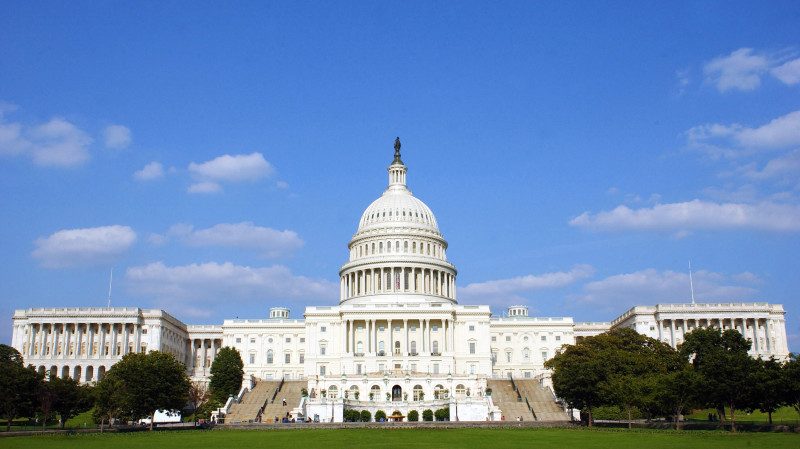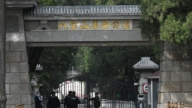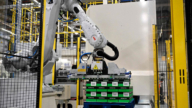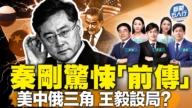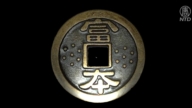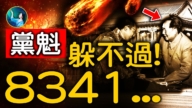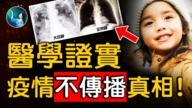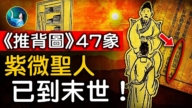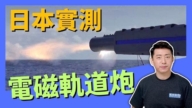【新唐人北京时间2018年08月28日讯】 【世事关心】(477)中美是否彼此误判40年?:这次来真的了,川普(特朗普)总统正在大幅度调整对华政策;而且,民主党人在此问题上与川普站在同一阵线,这在当今的美国简直是不可思议。是什么改变了美国对华政策基本思路?一言以蔽之,美国终于看透了中共。
尼克松总统访华使两国开始了长达40年的互动,但美国从一开始就错判了中国吗?
President Nixon’s visit to China started a 40-year long interaction between the two countries, but did America get China wrong from the very beginning?
Bill Gertz(《华盛顿自由灯塔》资深编辑/senior editor of the Washington Free Beacon):“他们没有从根本上理解中国共产主义制度的本质。”
“They didn’t fundamentally understand the nature of the communist system in China. ”
从克林顿时代到奥巴马时代,以追求利润为导向的商务活动主导着美中政策,结果是什么,吸取的教训又是什么呢?
A profit-driven business sector dominated the U.S.- China policy from the Clinton era to the Obama era, What’s the result and what’s the lesson learned?
Bill Gertz(《华盛顿自由灯塔》资深编辑/senior editor of the Washington Free Beacon):“现在我们没有看到中国变缓和了,没有看到中国在朝着民主制度转变。事实是我们看到的恰恰相反。”
“ We have not seen a moderating of China. We have not seen an evolution towards a democratic system. In fact, we’ve seen just the opposite.”
在过去的40年里,中国是否也错判了美国?这将产生什么影响呢?
For the past 40 years, did China also get America wrong? And what impact will that have?
萧茗(Host/ Simone Gao):欢迎收看《世事关心》,我是萧茗。这次是来真的了,川普总统正在大幅调整美国对华政策。而且,民主党人在此问题上与川普站在同一阵线,这在当今的美国简直是不可思议。是什么改变了美国对华政策基本思路,一言以蔽之,美国终于看透了中共,美国再也不指望中共能有民主转型。更重要的是,再也不指望从中共的经济增长中分一杯羹,政治体制、经济体制上,都不再指望中共了。问题在于,最开始美国是怎样想的,为什么对此会抱有希望?过去四十年,美国对华政策的主要基点不是在地缘政治中争霸吗,是否这一基点被大公司的贪婪侵蚀了?还是一厢情愿但最终一场空。或者这是由于文化差异带来的误判?从过去四十年对华政策的失败中,美国学到的最重要教训是什么?我们无法在24分钟的威廉希尔公司网站里,从头梳理美中关系的来龙去脉,我们将着重分析上面提到的要点,下面让我们开始吧。
Hello, Welcome to 《Zooming In》, I’m Simone Gao. It is official,America is experiencing a MAJOR overhaul in China policy under President Donald Trump. And guess what? This time the DEMOCRATS are ALSO with the president. This is almost SURREAL In today’s America. What has changed in America’s thinking about China? If I have to summarize in ONE sentence, it would be. America FINALLY starts to see China AS it is. That is, No more hopes for a gradual transformation into democracy. No more hope for a peaceful rise of the dragon and most importantly. No More hopes for sharing that sweet pie of a prosperous Chinese economy in a mutually beneficial way. All these hopes are gone. But the question is, how did they come about in the FIRST place, In the past 40 years, Is America’s China policy driven by hegemonic ambitions in geopolitics? Has it been eroded by corporate greed? Is it a unfortunate result of wishful thinking? Or does the misunderstanding simply reflect cultural differences? What is the most important lesson America should learn from this 40-year long unsuccessful China experience? We don’t have the luxury for a detailed chronologization of the U.S.- China relations in my 24 minute-program, INSTEAD, we will pick out the pieces that addresses the aspects mentioned above and analyze them. So, let’s get started.
第二次世界大战后,世界进入另一种地缘政治紧张局势,即冷战。这是包括苏联及其卫星国家的东方集团与包括美国,其北约盟国和其它国家的西方集团之间的对抗。在20世纪60年代末的冷战高峰期,中苏关系的恶化使情况变得更加复杂。在苏联即将以核武器摧毁中国关键的政治和军事目标的前刻,尼克松政府认为一个强大的中国的存在将最好地服务于美国的利益,因为苏联是最具威胁的对手。
After World War II, the world entered into another state of geopolitical tension, namely, the Cold War. It is a confrontation between an Eastern Bloc that includes the Soviet Union and its satellite States, and a Western Bloc that includes the United States, its NATO allies and others. At the height of the cold war in the late 1960s, a deterioration of a Sino-Soviet relationship complicated the situation. On the brink of nuclear attack by the Soviets to destroy China’s key political and military targets, the Nixon administration decided the existence of a strong China would best serve America’s national interest because it was the Soviet Union that was the country’s biggest adversary.
尼克松遏止了苏联并接受了中国的橄榄枝。他于1972年访华,最终促成了两国正式建交。在福特和尼克松执政期间,美国向中国提供军事情报和技术。他甚至承诺抵消苏联对中国的威胁。
Nixon deterred the Soviet Union and accepted the olive branch from China. His visit to China in 1972 eventually led to the diplomatic relations between the two nations. During the Ford and the Nixon administration, the U.S. offered military intelligence and technologies to China. It even promised to neutralize the Soviet threat to China.
根据美国前官员,国际畅销书《百年马拉松》的作者迈克尔·皮尔斯伯里(Michael Pillsbury)的说法,里根总统尽管对中国共产党的性质及其前任的中国政策深表怀疑,但却对中国提升军力提供了最大的帮助。里根总统签署的几项国家安全决策指令(NSDD)允许五角大楼向中国出售先进的空中、地面、海军和导弹技术,将人民解放军变为世界级的战斗力量。它甚至开通了两国之间的核合作与技术开发。但与他的前任不同,里根增加了一个警示性条件,让美国的援助以中国疏远苏联并自由化其独裁体制为前提。但是,这些先决条件基本上被忽视了。
According to Michael Pillsbury, a former U.S. official and author of an international bestseller “The Hundred-Year Marathon”, President Reagan, although deeply skeptical about the Chinese Communist Party’s nature and his predecessor’s China policy, did the most to boost China’s military. Several National Security Decision Directive ( )signed by President Reagan permitted the Pentagon to sell advanced air, ground, naval, and missile technology to the Chinese to transform the People’s Liberation Army into a world-class fighting force. It even inaugurated nuclear cooperation and development between the two countries. But unlike his predecessors, Reagan added a caveat to make the U.S. assistance dependent on China’s allienization to the Soviet Union and liberalization of its authoritarian system. However, those conditions were largely ignored.
美国在军事和技术上的对华援助正是共产党希望在农业、工业、国防、和技术四个关键领域实现现代化的大战略所求之不得的。该战略最初由毛泽东精心策划,毛之后的最高领导人邓小平将此战略推向了一个新的高度。邓小平认为,经济改革和科技发展是中国改变命运的关键,他得到了卡特总统的大力帮助。这项工作包括接纳大量中国公派留学生到美国学习,主要是在科学和工程领域。邓的理念很简单,中国需要科学和技术,最快捷的办法是从美国拿。
America’s continuous effort to boost China militarily and technologically falls right into the Communist Party’s grand strategy of Modernization in four key areas, agriculture, industry, national defence, and technology. The strategy was first crafted by Mao Zedong. But it was Deng Xiaoping, the paramount leader after Mao, who took the strategy to a new level. Deng believed economic reform together with development in science and technology holds the key for China to change its fate. He received substantial assistance from President Jimmy Carter. The effort included accepting a great number of government associated Chinese students to study in America, mainly in the field of science and engineering. Deng’s rational is simple, China needs science and technology and the quickest way to get it is to take it from America.
萧茗(Host/ Simone Gao):邓小平的名言是“韬光养晦”就是增强实力隐藏野心。他说中共是“摸着石头过河”没有总体战略。这个比喻是部分正确的,中共可能并不完全清楚如何建立一个强大的经济帝国。但是有一件事他们从不含糊,中共必须是中国的唯一统治者,而且绝不能动摇,美国是否一开始就错看了中共。我与比尔·葛茨先生讨论了此问题。他是《华盛顿自由灯塔》的高级编辑,《中共威胁》的作者。
Deng has a famous saying “tao guang yang hui”. It means to hide your ambitions and build your capability. He claimed that China had no grand strategy but has just been crossing the river by feeling the stones. There are some truth to it. The Chinese Communist Party might not know everything they need to do in building an economically powerful empire, but they have been crystal clear about one thing from the very beginning, that is, the Party has to be the sole ruler of the country and this can NOT be changed. Has America got China wrong from the very beginning? I had a discussion with Mr. Bill Gertz, senior editor of the Washington Free Beacon.
萧茗(Host/ Simone Gao):“美国从一开始就误判了中国吗?为什么?”
“Has America been wrong about China from the beginning? ”
Bill Gertz(《华盛顿自由灯塔》资深编辑):“是的, 我认为尼克松政府对中国的战略性开放,实质是一个战略性赌博。换句话说,这是打中国牌反对苏联,它在当时是有其合理性的。还曾一度被认为是一个伟大的外交胜利。理查德·尼克松属于反共强硬派,他因为这项政策受到了保守派的批评。该政策的问题在于,苏联早已在1991年解体,但是美方从未重新检讨对华政策。就好像开车不看路,而这就是我认为美国政策失败的地方。他们基本上犯了一个巨大的战略错误,他们认为通过全方位的交往, 就能与这个拥有核武器的共产独裁大国,达成真正的战略伙伴关系。他们没有从根本上理解中国共产主义制度的本质。”
Bill Gertz:“ Yes, I do. I think that the strategic opening to China under the Nixon administration appeared to be what I would call a strategic gambit. In other words, this was the China card against the Soviet Union, and it had its place at the time. It was considered a great foreign policy success. Richard Nixon had been a very strong anti-communist, and he took criticism from his conservative supporters for opening up to China. The problem with that policy was that, once the Soviet Union collapsed in 1991, there was never a reevaluation of the China policy. And that’s – it was kind of on autopilot, and that’s where I think that American policy went off the rails. They basically made a huge strategic mistake by thinking that – by engaging — unfettered engagement with a nuclear-armed communist superpower dictatorship, that this was somehow going to lead to a real strategic partnership. They didn’t fundamentally understand the nature of the communist system in China. ”
一直以来追逐利益的商界,主导了美国对华政策将近二十年,结果如何?教训如何?
Coming up, a profit-driven business sector had dominated the U.S.- China policy for almost 20 years. What’s the result and what are the lessons learned?
美中蜜月因中共1989年在天安门屠杀争取民主的学生和市民告一段落。镇压后,共产党关闭了大部分出版物,抓捕了成千上万的运动参与者和同情者,发动了反西方的影响力运动,暂时停止了经济改革。邓小平敏锐地发现危险,即共产党统治即将出现的经济衰退,坚持认为中国将继续其改革开放政策,这句话是美国人最希望听到的。
The 1989 Tiananmen massacre of the pro-democratic students and citizens by the Chinese Communist Regime put a pause on the U.S.- China honeymoon. After the crackdown, the Communist Party closed a big percentage of publications, arrested tens of thousands of movement participants and sympathizers, waged an anti-western influence campaign and temporarily stalled the economic reform. Deng Xiaoping who keenly spotted the danger as, an imminent economic recession posed to the Communist Party’s rule, insisted that China would continue its economic reform and opening up policy, a line the Americans were eager to hear.
学生运动被镇压后不久,老布什总统就授权向中国继续运送此前所承诺的军事物资。
他说:“我相信民主力量将克服天安门广场上的这些不幸事件。”
Right after the student movement, President George H. W. Bush authorized the promised delivery of military supplies to China. He said: “I am convinced that the forces of democracy are going to overcome these unfortunate events in Tiananmen Square.”
比尔·克林顿在竞选中声称将对中国采取强硬态度。然而,他上台后的强硬立场并没有持续多久。根据迈克尔·皮尔斯伯里的说法,中国以统战手段在克林顿政府内发动了一个支持中共的联盟,以促进他们与中国在商界的盟友之间的联系,在华盛顿为中国的利益发声。中国官员以商业交易诱惑有影响力的美国商人。克林顿竞选活动的主要捐助者直接游说总统,要求他不要破坏波音飞机向中国人的销售前景,或阻止在中国火箭上发射美国商业卫星,这可能给美国政府节省数亿美元。
Bill Clinton campaigned on being tough on China. However, his tough stance did not last long after he took office. According to Michael Pillsbury, China mobilized a pro-China coalition within the administration to facilitate contact between them and China’s allies in the business community, and to promote China’s interests in Washington. Chinese officials dangled commercial deals before influential American businessmen. Major donors to the Clinton campaign lobbied the president directly, asking him not to jeopardize the prospective sales of Boeing aircraft to the Chinese or to stand in the way of launching American commercial satellites on Chinese rockets, which would save the U.S. government hundreds of millions of dollars.
此外,从选举人的经济利益出发,中共在国会得到了新的支持。到1993年底,这些中共盟友说服总统放松他的反华立场。
In addition, new support was mobilized in Congress, based on constituents’ economic interests. By the end of 1993, these allies persuaded the president to relax his anti-China stance.
剩下的故事已成为历史,克林顿政府帮助中国加入世界贸易组织,并授予中国最惠国待遇。之后,外国投资涌入中国并提高了国民生产总值。中国成为世界工厂和第二大经济体。然而,与此同时,她并没有成为一个拥抱民主价值观的更加自由的社会。共产党政权反而利用外国技术帮助发展其超级防火墙和其它设备来加强控制和迫害中国人民。
The rest of it is history, the Clinton administration helped China enter the World Trade Organization and granted the Most Favored Nation status to China. Following that, foreign investment poured into the country and boosted its GDP. China became the world factory and the second largest economy. Meanwhile however, it has not become a freer society that embraces democratic values. The Communist Regime largely used foreign technological help to develop its great firewall and other apparatus to control and persecute the Chinese people.
萧茗(Host/ Simone Gao):这场失败的原因是什么?教训是什么?请听我和Gertz 先生的探讨。
萧茗(Host/ Simone Gao):“从20世纪90年代到奥巴马时代,美国对华政策深受本国跨国公司和大财团的影响。 现在,我们终于看到这一政策带来的长期影响了,商界为利益所驱动、主导公共政策这一模式,让美国深受其害。为什么会走到这种地步呢,这种情况会再次发生吗?”
“ From the 1990 to the Obama era, America’s China policy had been heavily influenced by American international corporations. Now finally, we start to see the long term impact of this policy. A model in which a profit-driven business sector dominates public policy has brought great damage to the country. What do you think is wrong with this model and will it happen again?”
Bill Gertz(《华盛顿自由灯塔》资深编辑):“我的观点是, 这么多年来我一直在发出警告。从20世纪80年代开始,再到2000年我出版《中国威胁》一书,从一开始我就坚持认为,对华根本政策是错误的。以前的政策,部分基于这样的考量:如果美国与中国开展贸易,这种贸易和商业互动会产生缓和性影响,最终让中国实现从一个共产主义国家向一个民主国家的转变。从80年代开始,30多年来,这种假设一直支撑着美国的对华政策。现在证明:这种政策从根本上就错了。现在,我们没有看到中国变缓和了;没有看到中国在朝着民主制度转变。事实是,我们看到的恰恰相反。这就是那些人常说的第二次婚姻,其对胜利的希望强盗可以忘记过去的经验。你不能把国家安全政策建立在希望的基础上,他们以前就是这么干的,就是这么希望通过与中国做贸易,让中国变得更加爱好和平、更加民主、更加开放。”
“ My views, I’ve been sounding the alarm on what I call the China threat for many years, going back to the 1980s and with my 2000 book The China Threat. And I’ve argued since the beginning that the fundamental approach to China has been mistaken. And that approach has been partly that, if the United States trades with China, this trade and business interaction will have a moderating influence and ultimately result in the evolution of China from a communist state to a democratic state. And that assumption has been the underpinnings of American policy for more than 30 years, going back to the ‘80s. And it’s proven to be fundamentally false. We have not seen a moderating of China. We have not seen an evolution towards a democratic system. In fact, we’ve seen just the opposite. This is the – what they often say about second marriages, that it’s the triumph of hope over experience. You can’t build a national security policy based on hope, and that was what they did in hoping that trading with China would bring about a more peaceful and a more democratic, more open China.”
萧茗(Host/ Simone Gao):“我在想,是不是错就错在一厢情愿上了。美国大公司的贪婪又是怎样一种情况呢。思科、微软、他们在中国都赚了好多钱了。”
“ I wonder if the fault is all on wishful thinking. How about the greed of big American corporations. Cisco, Microsoft, they all made big money in China by doing so. ”
Bill Gertz(《华盛顿自由灯塔》资深编辑):“至于说他们,我想没有人真的去翻翻他们的账簿,看他们到底在中国赚了多少钱。在中国,无论你干哪一行,都会受到严格的限制。中国人需要美国把技术大量的转让给他们,他们对在华的美国企业施加了令人难以置信的限制。我再重复一次,从商界角度来看,他们是基于希望,希望不管怎么样吧,能够进入14亿中国人这一新兴市场。我再说一次,他们是希望如此;我们还是回到商业领域来谈,就是希望美国的资本主义理念能够在中国广为接受。不过,从某种意义上说,资本主义理念并没有被广为接受,特别是在中国领导人习近平的统治之下,我们看到中国在意识形态问题上走得更远了,在共产主义的立场上变得更加强硬了。”
“ They – I wonder, nobody’s ever looked at their books to see how much money they’ve made in China. Every business is heavily restricted in China. The Chinese require massive transfers of American technology, they put incredible restrictions on American companies over there. Again, it’s – from the business community standpoint, it was based on the hope, this hope that somehow they could gain access to this emerging market of 1.4 million – billion people in China. And the hope was that, again, let’s try to get them into the business sphere and hope that this idea of American capitalism will catch on. Well, it hasn’t caughten on, in a sense that, especially under Chinese leader Xi Jinping, we’ve seen a retrenchment towards a much more ideological and much more hardline communist position. ”
萧茗(Host/ Simone Gao):“我对思科有一些了解。上世纪90年代末,思科总裁主动与中国的国家领导人接触。思科为中国‘防火长城’的设计奠定了基础,还帮助中国完成‘金盾’工程,并向中国出售设备。我明白企业就应该赚钱,不能让企业承担太多的道德责任。但是,当一个受利益驱动的行业竟然驱动公共政策的时候,是否会遭遇忽视、甚至损害国家长远利益、价值观方面的风险吗?”
“ I know something about Cisco. Its president reached out to the Chinese leaders in the late 1990s. Cisco laid the design foundation for China’s Great Firewall, helped China with the Golden Shield project and sold equipment to China. I understand businesses are supposed to make money and you can’t put too much moral burden on them. But when a profit-driven business sector is driving the public policy, would we run into the risk of neglecting or even compromising the long term interest and values of the country?”
Bill Gertz(《华盛顿自由灯塔》资深编辑):“是的,太有可能这样了。我认为他们,首先这么说吧,美国许多科技公司开始意识到了,与中国做生意是一件风险很高的事。风险在哪里呢? 风险在于,中国将窃取它们最重要的专属秘密,即它们的行业秘密和经济秘密。我想,这一点对很多在中国做过生意的公司来说,确确实实比以前更明显一些了。针对这一点,我们看到川普政府在采取比较大的反击措施。美国贸易代表办公室通过采取一些行动,对此提出了一份报告。他们一直在非常积极地反击。其中一个原因是,美国许多公司的老板找到美国政府说,你看,我们的秘密不知不觉的就被中国偷去了,所以我们需要采取一些措施来保护我们的技术。因为现在,技术确实是推动美国工业和经济发展的引擎。”
Bill Gertz:“ Yes, very much so. I think their – first of all, many of the American technology companies are beginning to understand that doing business with China is a high-risk enterprise. And what is the risk? The risk is that China will steal their most important proprietary secrets, their industrial and economic secrets. And that’s really, I think, becoming a little bit more clear to a lot of companies that have done business in China. Under the Trump administration we’re seeing a major pushback against that. Through a number of actions, the U.S. trade representative office did a report on this. They’ve been very aggressive in pushing back. And part of the reason for that is that many of the American business leaders have approached the U.S. government in saying, look, we’re being stolen blind by China. We need to do something to protect our technology because it is really the engine for America’s industry and economy right now. ”
接下来,川普总统的对华政策大反转,以及过去40年的对华政策教训是什么?
Coming up, the overhaul of China policy under President and what’s the lesson to be learned about China from the past 40 years?
在奥巴马执政期间,以亚洲为枢纽的政策开始成型。当时的国务卿希拉里·克林顿发表了一篇关于外交政策的文章 – 美国太平洋世纪。半年后,国防部长莱昂帕内塔提出了亚太再平衡大纲,表明美国海军将把10%的船只和潜艇部署到太平洋。到2020年,60%的美国海军将部署在太平洋周围。一年后,他的继任者查克·哈格尔宣布,60%的美国空军也将部署在亚太地区。下一任国防部长阿什顿·卡特保证美国将继续增加该地区的军事力量预测。2016年2月,美国和其它11个国家签署了跨太平洋伙伴关系协定,许多观察家认为这将减少签署国对中国贸易的依赖,使其更接近美国。
Narration: During the Obama administration, a pivot to Asia policy was formed. The then secretary of State Hillary Clinton published an article on Foreign Policy- America’s Pacific Century. Half year later, Secretary of Defense Leon Panetta presented an Asia-Pacific Rebalance outline that indicated the U.S Navy would deploy 10% of its ships and submarines to the Pacific ocean. By 2020, 60% of the American Navy will be deployed around the Pacific Ocean. One year later, his successor Chuck Hagel announced that 60% of the American Air Force will also be deployed in the Asian pacific region. Ashton Carter, the next secretary of defense in line assured that America would continue to increase its military power projection in the region. In February 2016, the United States and 11 other countries signed Trans-Pacific Partnership Agreement which many observers believed would reduce the signatories’ dependence on Chinese trade and bring them closer to the United States.
但人们仍然没有意识到奥巴马时代中国政策的根本变化。在唐纳德·川普总统就职后,这种情况迅速改变。
But people still didn’t sense a fundamental change of China policy in the Obama era. This changed quickly after President Donald Trump took office.
2018年8月13日,川普签署了2019年度“国防授权法案”(NDAA)。这项价值7.16千亿美元的国防政策为军事部门的武器升级提供资金,增加了现役军人的力量,并列出一些对美国安全构成战略性挑战的国家,中国位列前茅。
(NDAA) for 2019. The 716-billion-dollar defense policy funds weaponry upgrade across military branches, increases the active duty forces and addresses a number of countries that pose strategic challenge to America, among which, China, took a front seat.
NDAA表示,国防部长将不允许中国参与南海地区的海军演习,直到中国停止所有填海扩岛活动,撤出南海地区所有武器,并一直致力于稳定该地区连续四年之前。
The NDAA states that the Secretary of Defense won’t allow China to take part in naval exercises in the South China Sea area until China halts all land reclamation activities, removed all weapons, and has consistently acted towards stabilizing the region for four consecutive years.
NDAA还扩大了其年度中国军事和安全发展报告的范围,包括通过投资、工业、网络管理和学术界进行的间谍活动和技术转让。它增列了中国为影响媒体、文化、商业、学术、和政策社区所做的努力,以及其在海外用以支持其安全和军事目标的非军事工具。
The NDAA also expanded the scope of its annual China military and security development reports to encompass espionage and technology transfers through investment, industry, cybertheft, and academics. It added China’s efforts to influence media, culture, business, academic, and policy communities, as well as its nonmilitary tools overseas to support its security and military objectives.
该法案还扩大了其针对中国的战略,将以整体政府战略制衡中国破坏民主体制和进程的计划。
The bill also expanded its China strategy to include a whole-of-government strategy addressing China’s efforts to undermine democratic institutions and processes.
这些更加详细的关于中国的新增内容反映了近年来共和党和民主党,以及美国社会其它群体迅速达成的共识。那就是—— 中国是主要的竞争对手,而不是合作伙伴。对川普总统而言,这与他对中国的公开对抗态度是一致的,当时他却因此而招致批评。
These more detailed China additions reflect the consensus that both political parties and other sectors of the American society have quickly reached in recent years. That is – China is a major rival instead of a partner. For president Trump however, it is in line with his openly confrontational approach to China which had drawn criticism at the time.
川普总统当选以来曾多次打破与中国的外交先例。他接受了台湾总统蔡英文的贺电,并祝贺她当选 。这是自1979年美国断交以来,台湾领导人和美国领导人之间的第一次联系。相反,川普总统从未祝贺中国国家主席习近平当选,尽管他说他与习主席关系良好。
Since his election, President Trump has broken diplomatic precedence regarding China on several occasions. He accepted a congratulatory phone call from Taiwanese President Tsai Ing-wen, where he also congratulated her on her election victory. It was the first known call between a Taiwanese leader and a U.S. leader since the U.S. severed diplomatic relations in 1979. In contrast, President Trump never congratulated Chinese President Xi Jinping on his election, despite saying he has good relations with President Xi.
川普总统还质疑北京的“一个中国”政策,这是中国的底线之一。
President Trump also questioned Beijing’s “One China”policy which is one of China’s bottom lines.
川普(美国总统):“我完全理解‘一个中国’的政策,但我不知道为什么我们必须接受‘一个中国’的政策,除非我们与中国达成协议,包括贸易在内的其它事情。我不想中国对我发号施令。”
President Trump: “I fully understand the ‘One China’ policy, but I don’t know why we have to be bound by a ‘One China’policy unless we make a deal with China having to do with other things, including trade。I don’t want China dictating to me. ”
在对中国的另一次反击中,川普总统签署了“台湾旅行法案”。他恢复了美国与台湾官员之间的高层互访。由于1979年签署的中美联合公报,这些访问停止了。有一点值得注意的是,“台湾旅行法”于2016年首次提出,但未经国会通过。两年后,国会一致通过了。
In another pushback against China, President Trump signed the Taiwan Travel Act. It resumes the high-level visits between Taiwanese and the U.S. officials’. These visits stopped as a result of the Sino-US joint communiques signed in 1979. One thing to note is that the Taiwan Travel Act was first proposed in 2016 but it was not passed by the congress. Two years later, the congress passed it unanimously.
川普政府与前政府之间的政策差异并未停留在外交层面。在川普的执政下,美国海军增加了在中国人造军事岛屿所在的有争议的南中国海的巡逻。整个奥巴马政府期间仅仅进行了四次巡逻,在川普总统领导下,巡逻增加至每月两到三次。
Policy differences between the Trump administration and previous administrations don’t stop at the diplomatic level. Under Trump, the U.S. Navy has increased its patrols in the disputed South China Sea where China’s man-made military islands are located. There were four patrols conducted during the entire Obama administration; under President Trump, patrols have increased to two or three per month.
最后,川普总统开始了与中国的贸易战。通过对抗中国不公平的贸易行为和知识产权盗窃,川普政府有效的打乱了中共主导的经济模式。
And finally, President Trump started the trade war with China. By confronting China’s unfair trade practices and intellectual property theft, The Trump administration, in effect, is disrupting China’s Communist Party dominant economic model.
萧茗(Host/ Simone Gao):美国对华政策在川普领导下正在发生巨变,川普走在正确的路上吗?再次有请葛茨先生。
萧茗(Host/ Simone Gao):“你怎么看川普最近签署的这个2019国防授权法案?”
“ What do you think of the NDAA (National Defence Authorization Act)2019 that President Trump signed into law recently?”
Bill Gertz(《华盛顿自由灯塔》资深编辑):“我认为新的国防授权法案迈出了重要的一步,就是川普政府给新的中国政策定调。新的政策最先在白宫的国家安全策略中画出轮廓。好像是在2017年12月,然后就有了新的国防战略,今年1月份出来的。这两个文件,几十年来头一次,将中国定性为战略对手。这是一种外交说法,说的是中国不再会被接纳为支持民主,支持资本主义的国家。所以我认为新的国防授权法在几个领域把这种新战略写成文字。现在对这个法案有一些反对声音。比如,对中国问题最常发声的参议员之一的Marco Rubio, 对这个投了反对票,因为这个法案没有包含他一直推动的对中国电信公司的限制。那是由于川普政府和中国做出的一个交易,移除了对中国电信公司的限制。但是从积极方面看,我们看见这个法案真的会加强和台湾的关系,我认为这是川普政府的一个重要的战略步骤、合作。”
“ I think the latest National Defense Authorization Act is a very important step forward in codifying the new approach to China by the Trump administration, which has been outlined in, first, the White House national security strategy. I think that was in December of 2017, then followed by the new national defense strategy, which came out in January of this year. And those two, for the first time in decades, identified China as a strategic competitor, which is a diplomatic way of saying that it’s no longer accepted that China is going to become a pro-freedom, a pro-capitalist nation. And so I think that the NDAA for the first time has kind of codified that new strategy in a number of areas. Now, there are some minuses to it. For example, Senator Marco Rubio, who is one of the most outspoken on the issue of China, voted against the measure because it did not contain restrictions on Chinese telecommunications companies that he was advocating. And that was as a result of a Trump administration deal with China which removed U.S. sanctions on Chinese telecommunications. But on the positive side, we see that this has really called for strengthening U.S. relations with Taiwan, which I think is a real important strategic move by the Trump administration,Cooperation. ”
萧茗(Host/ Simone Gao):“是什么让川普在中国问题上和前些任的总统不一样?”
“ Right, what’s the thing about Trump that makes him different from previous presidents in dealing with China?”
Bill Gertz(《华盛顿自由灯塔》资深编辑):“有意思,我研究这个总统,他的政策,我注意到最早到2012年,川普那时候想着竞选总统,他写了一本书。那本书里,他就谈到要在中国问题上和美国商界走不同路线。尤其是专注于,而不是忽略,中国的人权迫害问题。还有当然,从生意角度看,中国的不公平贸易问题。我认为那个是总统的新政策的首要原动力。”
Bill Gertz: It’s very interesting. I’ve studied the president, the current president’s policies, and I noticed that as far back as 2012, Trump first wrote a book when he was thinking about running for president in that time, and in that book in 2012, he talked about breaking with the American business community on China, specifically, really focus – not ignoring, no longer ignoring China’s human rights abuses and, of course, from a business perspective, China’s unfair trade practices. So that has really been, I think, for the president, the prime impetus for his new policy.
萧茗(Host/ Simone Gao):“白邦瑞先生的书对于美国影响中国的能力,勾勒出一个悲观的图景。书里说美国误判中国40年。但是我想问另一个问题,是不是中国也同样误判美国40年?他们大规模偷窃美国技术和经济成果,但是他们是不是理解美国强大的来源是哪里?如果他们既不明白什么让美国强大,也瞧不上这个,美国是不是需要担心中国会成为一个长期存在的超级力量?这些问题你怎么看?”
“ Mr. Pillsbury’s book paints a rather pessimistic picture of America’s ability to influence China. It talks about how America has got China wrong for four decades. But I would like to ask another question – Has China misunderstood America for four decades as well? They stole a great amount of American technologies and economic strategies, but do they understand where the true strength of America come from? If they neither understand what had made America great nor appreciate it, does American need to worry they will become a long-lasting super power in the world? What’s your thinking on these questions?”
Bill Gertz(《华盛顿自由灯塔》资深编辑):“首先,我认为从北京的角度来看,1991年的苏联解体,是当时中共领导人的警钟。他们明白如果不做出改变,就会像苏联一样垮掉。那时当然他们已经开始了80年代的改革开放。但是我认为那只不过是想让共产主义再次强大。我觉得那是他们追求的。他们修改了共产主义的经济系统,但是他们不修改共产主义意识形态,像是强大的中央集权,对内的高压维稳。这些是他们不能放弃的共产主义的关键特征。他们害怕的是如果他们在那几个方面放松管制,转向一个相对民主的政权,他们就会和苏联一样的结局。但是在经济层面,喊着致富很好的口号,让我们都变富裕, 现实是,腐败滋生,这是中国的现状,还有贫富悬殊。沿海城市和精英阶层在这种制度中受益,而国家的其它部分却在贫困和泥淖中萎缩,这是中国不能解决的内部矛盾。还有他们还要面对那种体制的价值观流失,在很多公共领域共产主义价值观流失,但是他们也承认,没有内部的价值体系。这个曾经被认为是资本主义的一个问题,但是观察一下20世纪早期的资本家,他们基本上有宗教或是基督教的价值体系,他们寻求更多的善,怎么样能惠及全社会。这样的一个价值系统,我看在中国也没有,我认为中共领导层知道这个问题。他们曾经对新加坡的一党专政或是一党制政治体制做过研究,还有日本,寻找凝聚他们的价值观,结果没找到。所以在当下的中国,我看在原教旨型共产主义和半资本半社会主义中间的这个中国政治体制,是有巨大矛盾的。”
“ Well, first off, I think that from the Beijing perspective, the collapse of the Soviet Union in 1991 was a wake-up call in that the Chinese leadership understood that they had to make changes in the system, otherwise they were destined, like the Soviet Union, to collapse under a communist system. Now, they had already begun the reform and opening up process in the ‘80s before that, but I think that that was – they were basically set on a course designed to make communism great again. And that’s kind of their – from my perspective – that’s kind of what they were after. And they – so they modified the communist economic system, but they have not modified the communist ideological system: strong central control over everything, internal security, repression. These are the key features of the communist system that they are unable to give up. And their fear is that if they loosen on that and move towards a more democratic state, that they will end up like the Soviet Union. But yet on the economic side, the watchword was, yeah, it’s great to be rich, let’s all get rich. But as it turned out, with rampant corruption, as it is in China today, that there’s great disparities in wealth. You have coastal cities and elites benefitting from the system, where the rest of the country is languishing in poverty and squalor. So this is an internal contradiction that China has not been able to deal with. And they’re also dealing with a lack of values in that system, in that they’ve moved away in many public forms from endorsing hard-line communism. But they also recognize that there’s no internal values system. This was considered a problem for capitalism, but when you look at the capitalists in the early part of the 20th century, they had basically religious or Christian value systems, which oriented their – they looked for the greater good, how could they benefit the whole of society. Where this is a kind of a value system, that I see, that it’s lacking in China. And I think the Chinese leadership understands this. They’ve studied one-party dictatorships or one-party political systems in Singapore, somewhat in Japan, looking for that values system that can hold what they have together, and they haven’t found it. So I see great contradictions within the current Chinese systems between what you have as a hard-line, ideological communist system on the one hand and a quasi-capitalist, semi-socialist. ”
萧茗(Host/ Simone Gao):根据法国政治哲学家亚力克西斯得托克维尔的说法,美国民主经验有三个核心特征、地方自治、民间协会和宗教,他还认为自由社会依赖公共道德,个人可以从理性或宗教中获取道德指导,但社会的和谐只能依赖宗教来实现,如果这是真的,在中国、在很大程度上,两者都不存在。我们不知道美国模式是否是最好的治国模式,但它使这个国家繁荣了242年。中国人民曾经拥有过大智慧,但是共产主义严重扭曲了今天中国人的思想,以至于即使共产主义在意识形态上已经消亡,其影响依然存在。在共产主义的影响被彻底消除之前,中国可能没有机会成为一个持久的世界超级大国。感谢你收看《世事关心》,我是萧茗,我们下周再见。
完
==============================
Producer:Simone Gao
Writer:Simone Gao
Editors:Julian Kuo Bonnie Yu Frank Lin Bin Tang
Narrator: Rich Crankshaw
Cameraman:Wei Wu
Transcription: Jess Beatty
Translation:Frank Yue Michelle Wan Bin Tang Guiru Zhang
Special Effects:Harrison Sun
Assistant producer:Bin Tang Sherry Chang Merry Jiang
Feedback:[email protected]
Host accessories are sponsored by Yun Boutique
New Tang Dynasty Television
August, 2018
=============================


